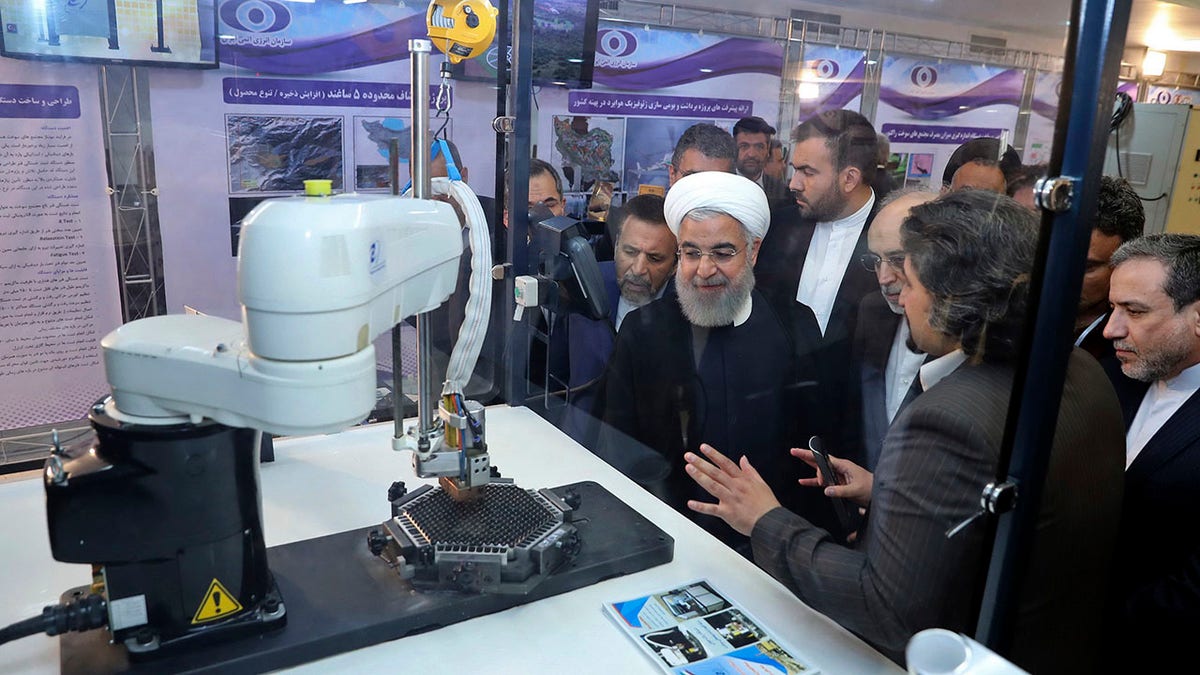Fox News Flash top headlines for July 7
Fox News Flash top headlines for July 7 are here. Check out what's clicking on Foxnews.com
In a second breach of the 2015 nuclear agreement it signed with world powers, Iran on Sunday said it will raise its enrichment of uranium.
Iran will go beyond the limit of 3.67 percent enrichment to a new percentage “based on our needs,” government spokesman Ali Rabiei said at a news conference, without specifying a new limit.
The announcement was expected to further heighten tensions between Tehran and the U.S.
GOP SENATORS URGE TRUMP TO REJECT IRAN'S 'NUCLEAR BLACKMAIL,' SEEK TO 'SNAPBACK' SANCTIONS AT THE UN
The move comes one year after President Trump announced that the U.S. would leave the accord that the Obama administration and other governments had entered with Iran’s leadership.
On Saturday, French President Emmanuel Macron told his Iranian counterpart, Hassan Rouhani, by phone that he was trying to find a way to resume dialogue between Iran and Western partners by July 15, the Associated Press reported.
Previously, Iran admitted breaking the deal's 661-pound limit on its low-enriched uranium stockpile. Experts warn that higher enrichment and a growing stockpile of uranium would make an atomic bomb possible sooner for Iran.
The 2015 deal’s proponents say the accord was designed to prevent Iran from developing a bomb – which Iran has claimed it wasn’t interested in building anyway.

Iran's President Hassan Rouhani listens to explanations on new nuclear achievements at a ceremony to mark "National Nuclear Day," in Tehran, Iran, April 9, 2018. (Iranian Presidency Office via AP)
Prior to Sunday’s announcement, Iran had warned Europe that it would begin pulling away from the deal in response to sanctions imposed by the Trump administration on Iran’s economy and its top officials. Tehran is hoping that accord signees Russia, China and Europe can help provide relief from the U.S. sanctions, the Wall Street Journal reported.
CLICK HERE TO GET THE FOX NEWS APP
Tensions between the U.S. and Iran began rising in May when the U.S. deployed additional troops and military capabilities to the Mideast. That was soon followed by mysterious oil tanker blasts near the Strait of Hormuz, for which some U.S. officials have blamed Tehran, and Iran shooting down a U.S. military drone – which nearly prompted a U.S. military response by President Trump.
At Washington’s urging, the International Atomic Energy Agency (IAEA) plans to meet Wednesday to review Iran’s recent actions and possibly issue a formal censure, the Journal reported.
The Associated Press contributed to this story.





















